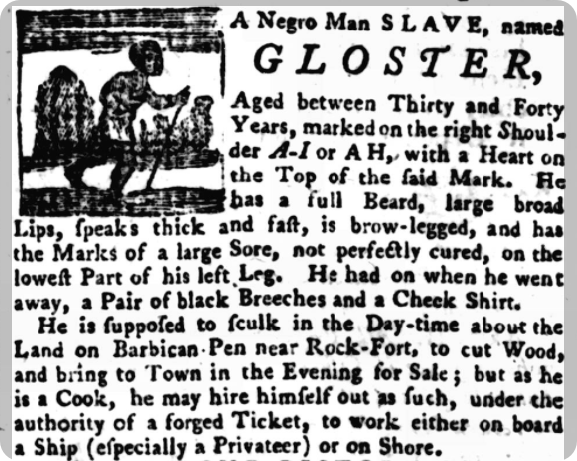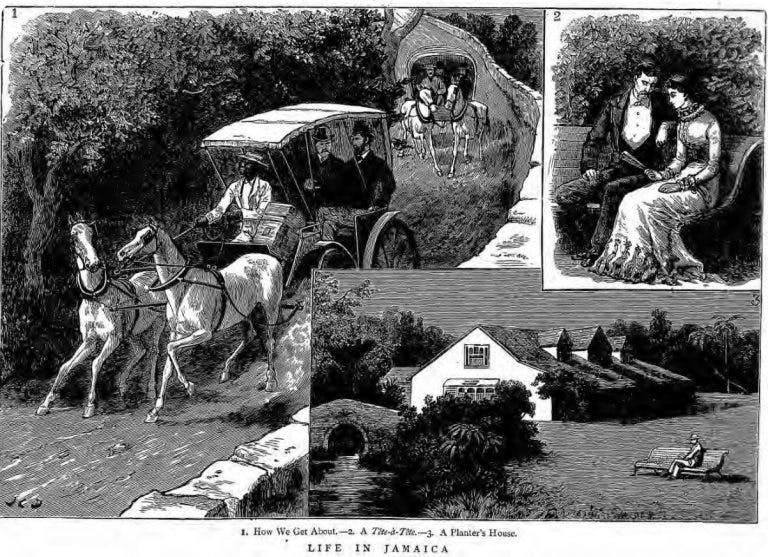This week's release documents British and Black History
5-6 minute read
By Jessie Ohara | February 4, 2022
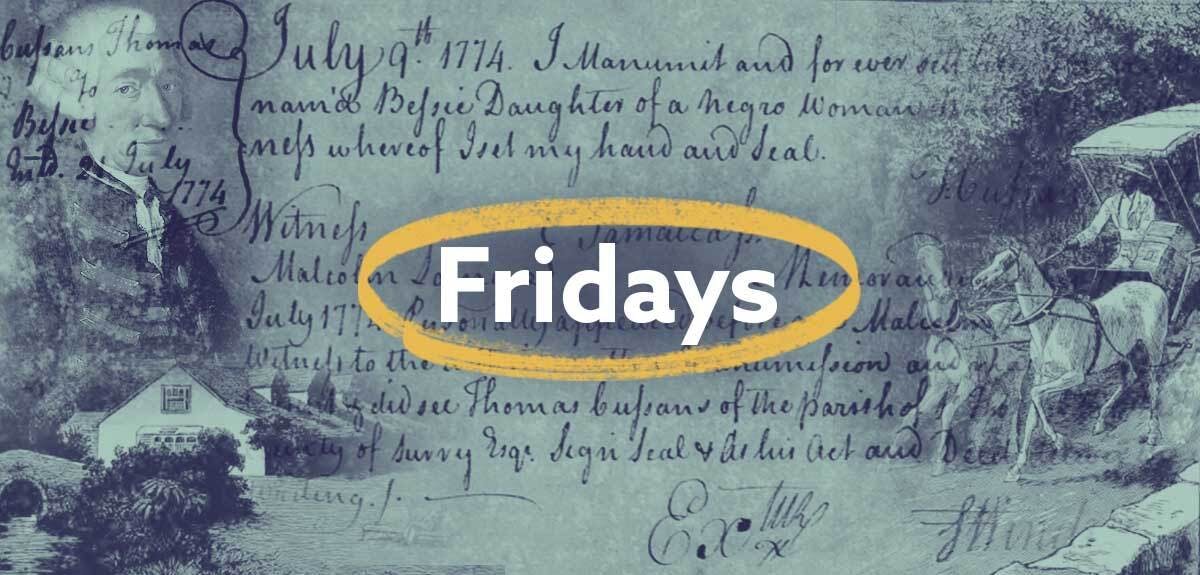
These two collections offer a varied - and important - subsection of history, from British burials to Jamaican manumissions.
Our new releases this week span all the way across the globe, substantiating two very different aspects of British and colonial British history.
Jamaica, Manumission of Slaves, 1747-1779
This focused collection of nearly 4500 records details the manumission records of enslaved Jamaicans between 1747-1779. It is important to note that the language used in this collection reflected social attitudes and language of the time, and is now understood to be offensive and derogatory.
Enslaved people that had been freed from their enslavers were required by Jamaican law to prove their freedom via a governmental certificate, or deed - and this is what the Jamaica Manumissions collection documents. Within its pages are biographical details of both enslaved person and enslaver - though unfortunately, given the overt and institutional power imbalance, enslavers often have more of their personal details recorded than the freed person.
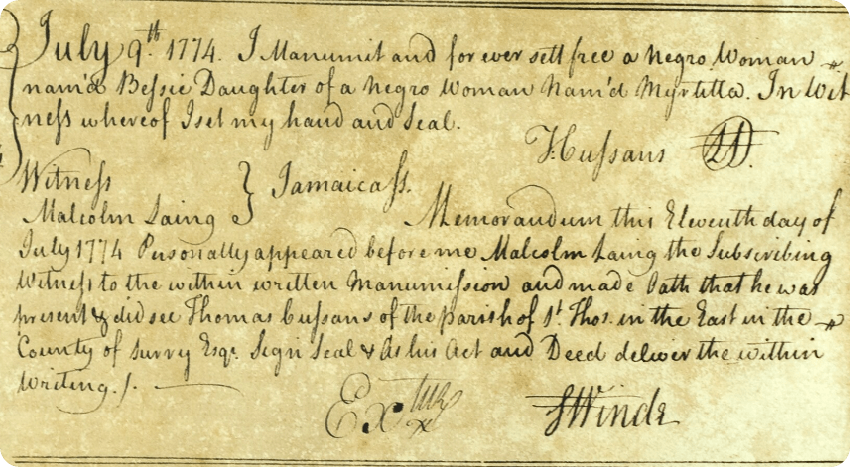
Though our data is transcript only, you can view the source files at the British Library website.
Though the majority of this collection lists the enslavers' addresses as Jamaican, there are some that record it as elsewhere, with 8 American addresses, 4 Irish addresses, 15 Scottish addresses, 93 English addresses - unsurprising, given the white Western colonialization of the area. However, many Jamaican property owners did not reside in Jamaica at the time.
While Jamaican law offered little rights to previously enslaved persons, the Assembly occasionally put forth private acts which granted them further, though still limited, liberties. It is under these conditions that some freed persons were able to purchase, and subsequently free, other enslaved persons - take John Donaldson, for example, who participated in the enslavement and immediate freeing of a woman and her two children. It is prudent, then, to note where the race of the enslaver is documented: within these records, 86 are listed as 'negro', 46 'mulatto', and 7 'quadroon'. It is likely that these private acts, though not frequent, facilitated black and mixed-race enslavers to free people of their own race. John Donaldson does not have his race listed, though this is seemingly because his race would have been removed from manumission after his extra liberties were granted.
It must also be noted however that both the address statistics and the race statistics may not be entirely accurate of the actual number of persons. For example, Jean Chapman - listed as a 'mulatto' - appears to have manumitted four individuals, possibly a parent and three children. Her data may then appear in the index up to four times, meaning the number of black or mixed-race enslavers is most likely fewer than the statistics would suggest.
As previously mentioned, there is fuller biographical information on the enslaver than there is for the enslaved person, which worked to only further push the message of inferiority against the enslaver. Often, the previously enslaved person would mark their name only with an X, or with a name that appears shortened in a Western context, but in fact is not. However, unlike freed African American people, freed Jamaicans did not take their previous enslaver's surname upon their liberation. They chose their own surname instead, which worked to institute their own heritage and distance themselves from their previous enslavement.
Despite this, manumission was simply the first step to building a life, and previously enslaved people were still considered an ideological threat to white hegemony. Because of this, most freed people found themselves in poverty, unable to work, and unable to own land. This partially changed in 1774, when the Assembly passed the ‘Act for The Regulating the Manumission of… Slaves’, which gave owners a grant to pass to newly freed people, amounting to £5. The change was small, but important, and gave newly freed people a basic foundation for a new life – though this did not remove the challenge of discrimination and prejudice from the wider community.
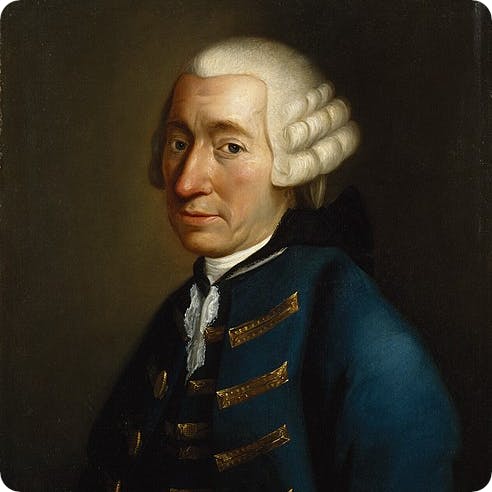
Scottish poet and author Tobias Smollet, listed as an enslaver in this collection.
There may be some familiar names in these pages. Tobias Smollet, Scottish poet and author - now hailed to have influenced the work of Charles Dickens - is noted as an enslaver. It becomes quickly clear that collections like this document a much darker history in Britain, one that is often unspoken, and one with ramifications that still persist through to the present day. Through the Jamaican Manumissions - and indexes like it - the stories of those so affected by British colonialism and slavery can now be discovered, illuminated, and shared.
From the archive
If you're looking into your roots and have traced them through the Colonies, then you may be able to find extra information in our Jamaican Births and Baptisms Register, which holds over 2 million records in its pages. Beyond that, we have multiple record sets from the Caribbean - including First World War Rolls of Honour - and census substitutes for the Leeward Islands.
National Burials Index of England and Wales
We've added another 700,000 records to our extensive National Burials Index, bringing the total number of records to an incredible 17 million.
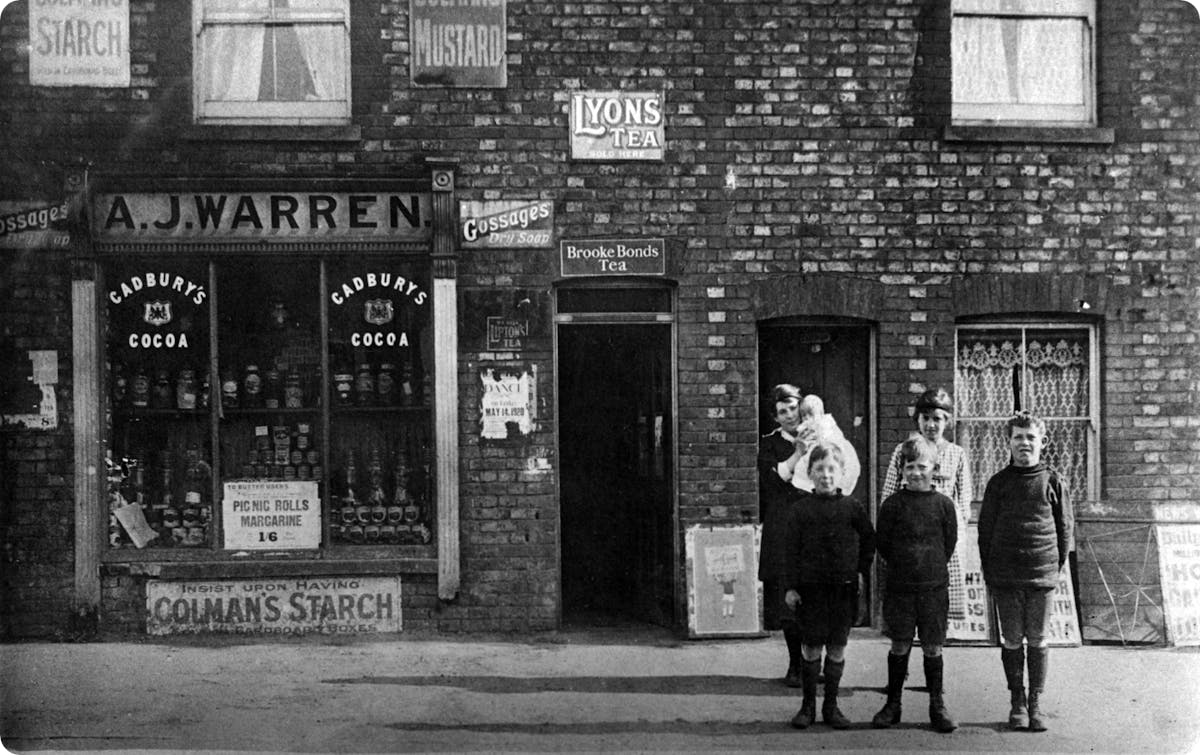
A J Warrens shop in Otford, Kent, 1905, found in our Photo Collection.
These new additions focus on four locations: Kent, Staffordshire, Leicestershire, and Rutland, so if you've got ancestors local to these areas that you've had no luck locating, be sure to check these records again and see what you discover.
Newspapers
We've added nearly 200,000 new pages this week, with seven brand new titles now in our collection. Discover everything from seaside gossip in the Skegness News to local football results in the Finchley Press. The full list of new and updated newspapers is below.
New titles:
- Finchley Press, 1895-1899, 1901-1909
- Glasgow Evening Times, 1879, 1884
- Hoddesdon and Broxbourne Mercury, 1984
- Liverpool Mercantile Gazette and Myers’s Weekly Advertiser, 1822, 1826-1827, 1829-1832, 1834-1843, 1845-1873, 1875
- Romsey Register and General News Gazette, 1859-1866, 1868-1873, 1875-1886, 1888-1894
- Skegness News, 1909-1962
- Skyrack Courier, 1886-1893, 1895-1898, 1900-1917, 1919-1923
Updated titles:
- Airdrie & Coatbridge Advertiser, 1975, 1977, 1979
- Buckinghamshire Examiner, 1944, 1946-1950, 1952-1954
- Carmarthen Journal, 1849
- Coventry Standard, 1946, 1955
- Daily Herald, 1951
- Diss Express, 1972, 1976-1979
- Fulham Chronicle, 1985
- Leicester Daily Mercury, 1955
- Liverpool Journal of Commerce, 1896
- Lynn Advertiser, 1945, 1950-1951, 1997
- New Milton Advertiser, 1978-1979, 1995-1997
- Newark Advertiser, 1994-1996, 1998-1999
- Nottingham Evening Post, 1970-1971
- Pontypridd Observer, 1978-1979, 1981
- Retford, Gainsborough & Worksop Times, 1955
- Southall Gazette, 1984
- Stirling Observer, 1849
- Winsford Chronicle, 1972
- Witness (Belfast), 1882, 1898, 1938
As ever, we want to hear from you, and we are always encouraging community-led conversation about your brick walls, your tips and tricks, and your discoveries. Head over to Facebook, Instagram and Twitter to share your stories, or check out the Findmypast Forum to get your questions answered.
Related articles recommended for you

Explore new records from Middlesex to Mumbai
What's New?
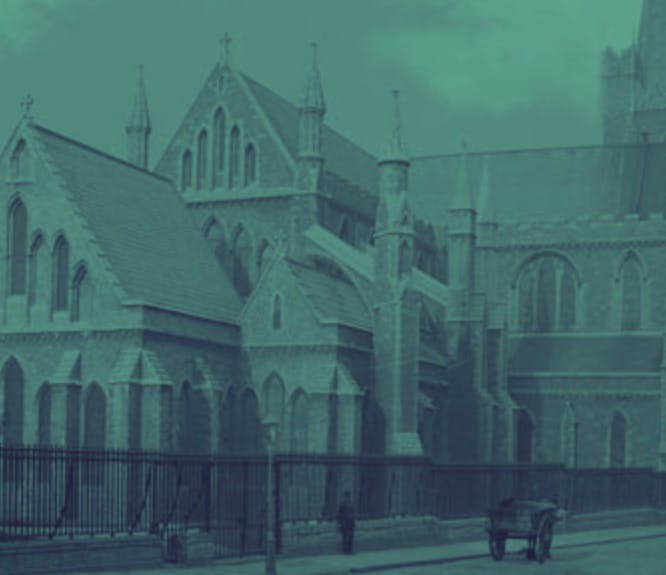
Irish family history and minority religions in Ireland
History Hub

The Women's Prize Trust announces Findmypast as the inaugural sponsor of the Women's Prize for Non-Fiction
The Findmypast Community

